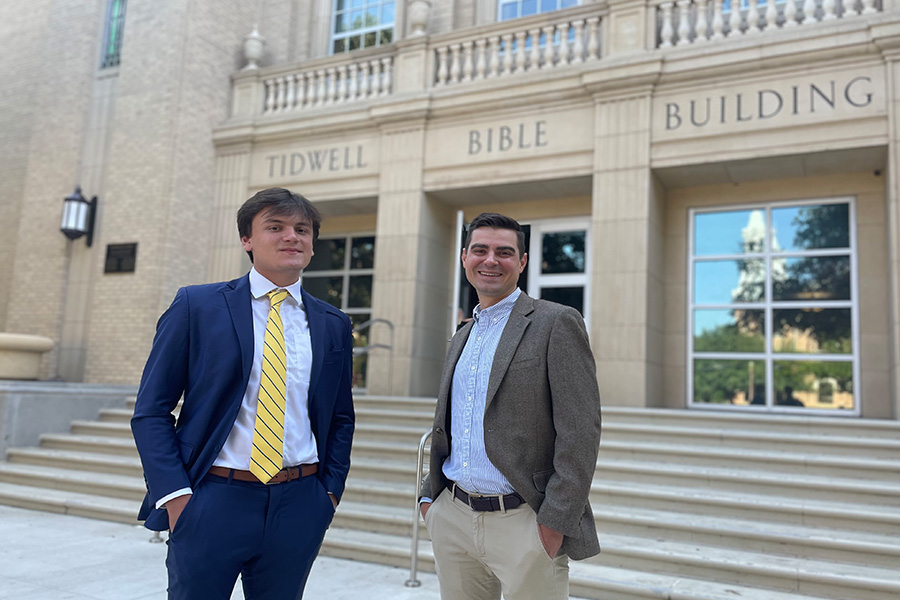History Major Participates in New College of Arts and Sciences Pilot Program

Charles Taylor (left) and Dr. Daniel J. Watkins (right) stands in front of Tidwell Bible Building.
History major Charles Taylor (class of 2025) has been accepted into the inaugural cohort of the Baylor University Challenge-Based Interdisciplinary Scholar (CBI) program. The CBI is a highly selective program run through the College of Arts and Sciences. CBI scholars are tasked with proposing an interdisciplinary research project that addresses a significant global problem. They spend their junior and senior years taking courses designed to help them study the issue and devising a research plan to respond to it. At the end of their time at Baylor, CBI scholars will present their research at the URSA Scholars Week.
Charles’s research project will focus on the legacy of European imperialism on public health strategies in East Africa. He came up with the idea for his project during an internship in Kenya. Charles is a History major on the Pre-Med track and is planning on a career in medicine. In the summer of 2023, he spent a month working at the Coast General Provincial Hospital in Mombasa where he experienced the realities of healthcare in a critically underfunded hospital in the Global South. Charles wrote in his application letter: “As I learned more about the Kenyan medical system, I was shocked yet intrigued to hear one thing repeated again and again: history.”
Coast General Provincial Hospital was established in the early twentieth century while still under British colonial rule. On the other side of the city was Mombasa Hospital, a medical institution established entirely for white settlers and endowed with far greater financial and medical resources than its companion institution across town. While colonial rule has ended in Kenya, the discrepancies of care between Coast General Provincial Hospital and Mombasa Hospital remain.
Charles will be working with his advisor, Dr. Daniel Watkins, and other members of the History Department and other units around campus to investigate how the legacy of imperialism has shaped healthcare systems in post-colonial East Africa all the way to today. In so doing, he will help illustrate the ways that historical research can inform some of the world’s most significant challenges. Charles believes the program will benefit him as well:
“Ultimately, I believe that exploring these incredibly complex but meaningful connections between history and medicine will allow me to become a more well-rounded physician in the future.”